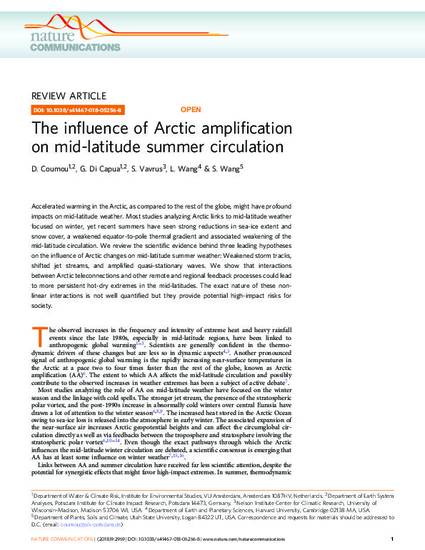
Accelerated warming in the Arctic, as compared to the rest of the globe, might have profound impacts on mid-latitude weather. Most studies analyzing Arctic links to mid-latitude weather focused on winter, yet recent summers have seen strong reductions in sea-ice extent and snow cover, a weakened equator-to-pole thermal gradient and associated weakening of the mid-latitude circulation. We review the scientific evidence behind three leading hypotheses on the influence of Arctic changes on mid-latitude summer weather: Weakened storm tracks, shifted jet streams, and amplified quasi-stationary waves. We show that interactions between Arctic teleconnections and other remote and regional feedback processes could lead to more persistent hot-dry extremes in the mid-latitudes. The exact nature of these non-linear interactions is not well quantified but they provide potential high-impact risks for society.
Available at: http://works.bepress.com/shih-yu_wang/113/
